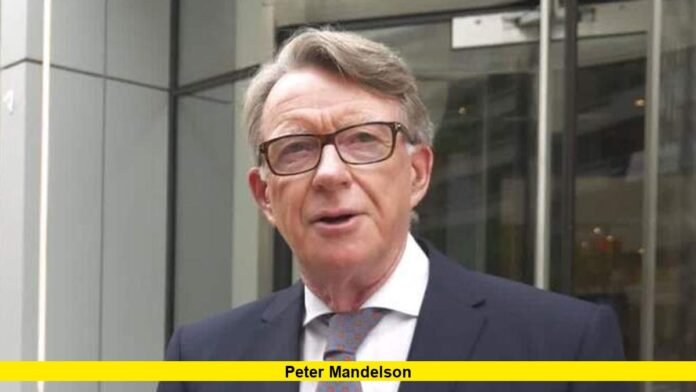Peter Mandelson has been dismissed from his role as the UK’s Ambassador to the United States after damaging revelations about his relationship with Jeffrey Epstein sent shockwaves through the political establishment. The fallout has not only ended Mandelson’s brief tenure but has also raised serious questions about Prime Minister Keir Starmer’s judgment and the government’s vetting process.
The Scandal Unfolds
The controversy erupted after emails and correspondence from the 2000s surfaced, revealing that Mandelson maintained a close personal relationship with Epstein. The documents suggested that Mandelson had referred to Epstein as his “best pal” and even advocated for leniency during Epstein’s legal troubles.
The emergence of these details undermined confidence in Mandelson’s ability to represent Britain abroad. His tenure, which began in February 2025, lasted only seven months, making it one of the shortest ambassadorial appointments in modern history.
Pressure on Starmer
Initially, Keir Starmer defended his ambassador, insisting that due diligence had been conducted prior to Mandelson’s appointment. However, the steady release of new evidence quickly turned the defense into a liability. Pressure mounted from both opposition parties and within Labour itself, forcing Starmer into a corner.
By dismissing Mandelson, Starmer hoped to draw a line under the scandal. Yet the decision has fueled criticism that the prime minister should have acted earlier, or perhaps never appointed Mandelson in the first place given his controversial past.
Why the Decision Matters
Mandelson has long been one of Labour’s most influential figures, known for his strategic mind and behind-the-scenes power. His appointment to Washington was seen by some as a bold move to strengthen Britain’s diplomatic influence, but by others as a political gamble.
The revelations about his personal ties to Epstein have transformed that gamble into a crisis. Critics argue that Mandelson’s connections were widely rumored for years, and that Starmer’s team either ignored or underestimated the risks.
Impact on Government and Diplomacy
The dismissal leaves Britain’s embassy in Washington without a permanent ambassador at a time when global challenges demand strong representation. A temporary leadership team will oversee diplomatic duties until a new appointment is confirmed.
The scandal also casts a shadow over Labour’s credibility on ethical governance. Calls for greater transparency in appointments are growing louder, with MPs demanding a full explanation of how such a figure was cleared for one of the most sensitive posts in foreign policy.
Timeline of Key Events
- February 2025 – Peter Mandelson appointed UK Ambassador to the US.
- Mid-2025 – Reports emerge about previously undisclosed communications with Jeffrey Epstein.
- September 2025 – Fresh evidence shows Mandelson advocated for Epstein despite criminal proceedings.
- Today – Mandelson dismissed from his role, ending a seven-month tenure.
The Road Ahead
For Starmer, the dismissal is both a necessary step and a political wound. His leadership is now being tested not just on policy but on judgment. For Mandelson, the scandal marks a dramatic fall from grace, erasing decades of influence and leaving his political legacy permanently scarred.
The episode also serves as a reminder that political appointments carry long memories. What once seemed like a calculated choice has become a cautionary tale in the dangers of overlooking past associations.
Closing out, the Peter Mandelson scandal shows how quickly political fortunes can collapse when old relationships resurface in the harsh light of public scrutiny. Readers are left to ask: could this crisis have been avoided with stricter vetting, or was it always bound to explode? Share your thoughts below.
